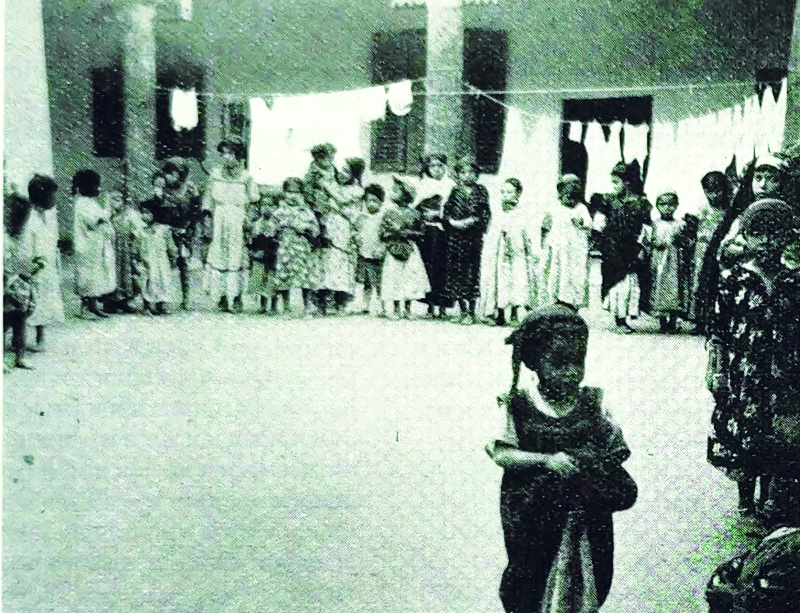We held the boys’ treat a few days after that of the girls. We had reckoned on five helpers, among them a French pastor. We prayed earnestly that God would give him a message of salvation for these boys. Between the girls’ and boys’ meetings rain fell continuously, making the roads impassable. Consequently, arriving at the hall on Sunday at the appointed hour, there was no pastor, and a crowd of about a hundred boys was waiting before the door.
Then a man from the post office brought us a telegram saying it was impossible for the pastor to come, owing to the state of the roads. At the same time, a French friend arrived quite unexpectedly and, although we were reduced to three workers, we opened the door. We felt our French friend was the messenger of God’s choice, his talk was so direct, we are sure it went home. We were conscious of the presence of the Holy Spirit in that meeting, the reverent attention of the boys was so marked. We admitted fifty-eight of them who had attended the classes and, happily we had a bag for each. To their delight there was a musical instrument in every bag.
Among the gifts, sent by friends, were some dolls which we could not give to the class girls, but we distributed them in houses that are too far away for the children to attend. One morning we had a few in our bag. While in a house, a very poor child asked us for some rags. We presented her with a doll. She gasped with joy, kissed our hands, thanked us profusely and, hiding it in her ragged frock, rushed out of the house to her home. The following morning, meeting us on the market place, she ran to us exclaiming : “Oh! My precious ladies!” Most probably it was the first time she had possessed a doll.
We realise that these gifts to the children mean sacrifice on the part of those who send them. But for their kindness it would be impossible to afford the little ones this yearly treat, and there is no doubt it is a means of demonstrating Christ’s love to them through His people.
May we solicit your prayers on behalf of the children, who, we believe, are the hope of the future.
Did you know that the original name of AWM-Pioneers when it was founded in 1881 was ‘The Mission to the Kabyles and other Berber Races’? If you would like to hear more about our history, check out our story or read more from the archives!
Disclaimer: although we share the same passion for mission, the language in this publication is reflective of the era and may not reflect how we would present these topics today.







